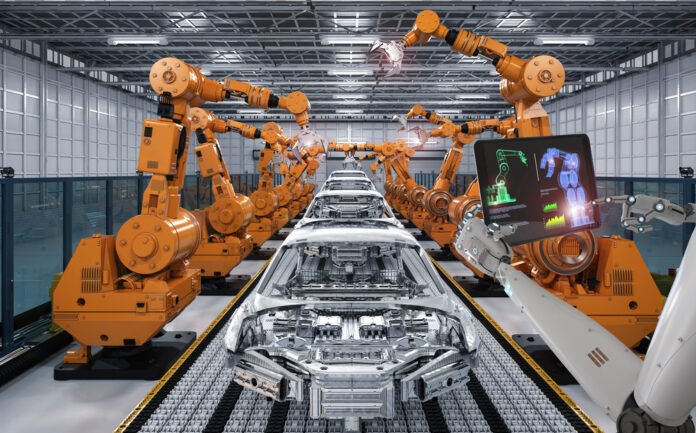For some time now, the increased automation of the UK’s manufacturing industry has been met with divided opinions. In the case of business owners, it is seen as something worth embracing. It promises increased productivity, fewer manufacturing errors and reduced production costs.
However, employees seem to be on the losing end of robotic automation. The idea that the robots might take over most jobs makes people see automation as an enemy to the UK’s job market. Fortunately, these fears are unfounded, and robots are, in fact, meant to increase the number of jobs available.
Here is why manufacturing automation is actually good for the UK’s job market:
Where the UK Lies In Automation
The UK is ranked at number 22 worldwide in terms of robot density. The country has 85 robot units per 10,000 workers. While this might seem like a fair rank, it is below the average robot density in Europe, which is 106 robot units per 10,000 employees. As a result, the UK is already lying behind in automation. Increasing the adoption of automation in the industry would be great for improving productivity as well as cutting the manufacturing costs.
Automation Is a Solution for Post-Brexit Labour Shortages
For a long time, the UK’s manufacturing industry has been relying on foreigners for labour in manufacturing plants. On the other hand, workers from the Middle East among other countries have been getting into the country in search of jobs. The situation changes with the introduction of Brexit.
With tougher trade and immigration laws, the UK has become a less inviting work destination. In fact, some workers might be leaving back to their countries of origin. This situation is ideal for automation since it will fill the labour shortage gap. Furthermore, filling these gaps also ensure the survival of jobs that depend on the automated jobs. For instance, a delivery guy will get to keep their job as long as the UK’s manufacturing industry improves its productivity and production volume.
Automation Gets Rid Of Redundant Tasks
Manufacturing without automation at the forefront can be quite redundant. Workers need to do repetitive tasks such as screwing pieces of machinery together. Luckily, working with robots removes the need to have humans do such tasks.
Instead, people can concentrate on the tasks that require their mental and skilled input. This means that instead of making people jobless, it increases job specification and the quality of the tasks at hand. Workers can now be more productive, and tasks can be even more engaging.
New Jobs Will Get Introduced In The Long Run
Of course, an employee whose sole job is to do something redundant might get replaced by these robots. However, this will only be a short term effect of automation. With time, more jobs will rise from automation. For instance, most cobots need to have people manning them to increase efficiency.
Think in the line of other historical disruptions in the job market such as the introduction of accounting software. While it reduced the need to have a large number of accountants working under a single firm, it led to the introduction of more jobs in the fields of cyber-security. As such, the job market will remain healthy if the workers learn how to adapt to the changes.
Why Has Germany Survived With High Levels Of Automation?
Germany is a great example of automation without job loss. Even though the country has a robot density of 309 units per 10,000 employees, it still maintains a healthy job market. In the country, automation adaptation only made it tough for new entrants into the manufacturing industry to find jobs. Those who were already in the job market were trained in different skills.
On the other hand, Germany’s education system encourages its students to learn more skills through vocational training. This not only ensures that the new entrants into the industry are job-market-ready, but it also diversifies the number of jobs that they can land. Lastly, Germany has strong labour unions that are always ready to advocate for the rights of the ever-growing workforce, making it easy to protect jobs.
Surviving In a Highly Automated Job Market
Automation comes with new challenges. Those who learn how to solve these challenges will be on the winning side of automation. Workers will need to at least understand some data analytics, programming and product design. While people who are already in the workplace will need to seek additional courses to what they do, student who wants to get into the manufacturing industry will have to seek vocational training to ensure that their skills match with what the job market yearns for.
Machines also have shortcomings regarding soft skills. They might be incapable of high levels of creativity, critical thinking and complex problem solving, though AI might help a little bit. Workers who have such soft skills as their stronghold have a high chance of landing such jobs and retaining them. Labour unions also need to be on the forefront of negotiating job retention and diversification despite increased automation.
Change in the manufacturing industry is inevitable, but it shouldn’t mean job loss. As long as the UK government can champion skill diversification, it can become easier to not only retain the current jobs but also create even more. What’s even better for the UK is that post-Brexit labour shortages make automation less of a disruptor and more of a need in the job market.
